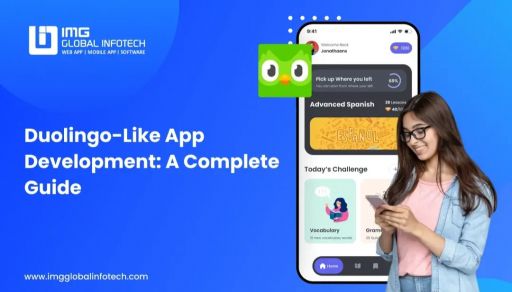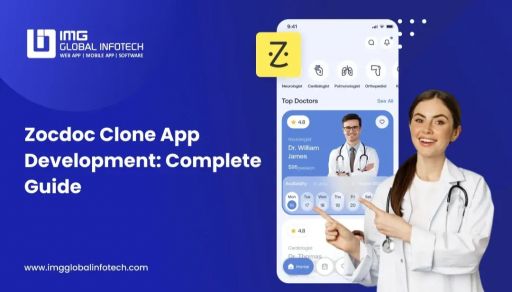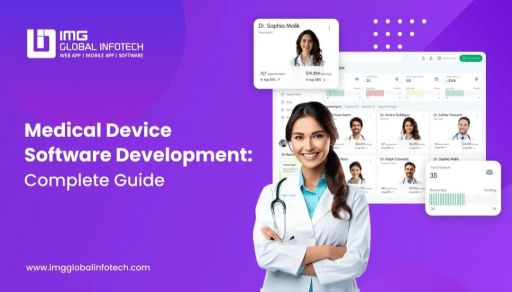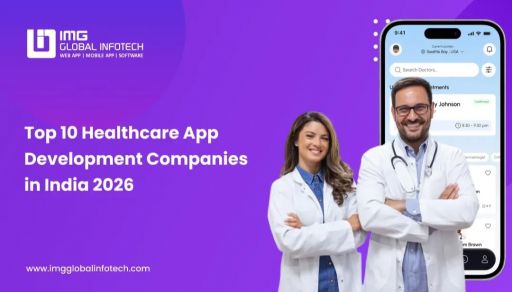Artificial Intelligence In Pharmacy: Innovations And Challenges
Neeraj Rajput
May 22, 2025

The pharmaceutical industry is experiencing unprecedented innovation and disruption in technology-enabled artificial intelligence (AI). AI will transform drug discovery, clinical trials, care, and patient engagement. Using vast data, AI algorithms can predict outcomes, identify drug candidates, and tailor treatment decisions at unprecedented scale, speed, and accuracy. However, notwithstanding the optimistic outlook, AI has significant barriers to implementation in pharmacies due to widespread issues regarding data privacy, regulatory compliance, high costs of implementation and training, and difficulty with integration into ongoing pharmacy systems and workflows. In this blog, we will examine some of the areas of pharmacy innovation and developments made possible by AI for pharmacy while also discussing the significant barriers to implementation.
Overview of AI in Pharmaceutical Market
The following key statistics on the application of AI in the pharmaceutical industry market are a way forward for 2024:
-
Close to 78% of pharma executives confirm that they are actively implementing AI tools designed to accelerate the early-stage drug discovery research and formulation processes.
-
On average, nearly nine out of ten pharma companies have increased their allocated budgets on AI and machine learning technologies over the last two years.
-
AI has reduced the drug discovery time frame from primarily an average of five years to less than 12 months. Use of AI has vastly improved the research and development stages of the pharmaceuticals marketplace, while increasing the time drugs are delivered to market.
-
By 2026, the application of ai in pharmaceutical industry is expected to produce over $400 billion in operational and commercial annual value, for pharmaceutical organizations across the globe.
-
Integrating AI into clinical trial management will save up to 70% of the cost and 80% of development cycles.
-
Studies report that AI can reduce the time it takes to develop new drugs by 4 years and can save $25 billion-plus in global pharma pipelines.
-
The AI-driven cancer diagnostics industry also depends on pharma-driven innovation and is projected to grow at a compound annual growth rate (CAGR) of 40% through 2028.
-
More than 60% of pharmaceutical executives see AI making its most significant impact on the supply chain and manufacturing workflows of the pharma industry.
-
The AI driven genomics industry will escalate at a projected 52.7% CAGR to 2028 and is necessary for personalized medicine and pharma R&D.
AI-Powered Innovations Transforming Pharmaceutical Research and Development
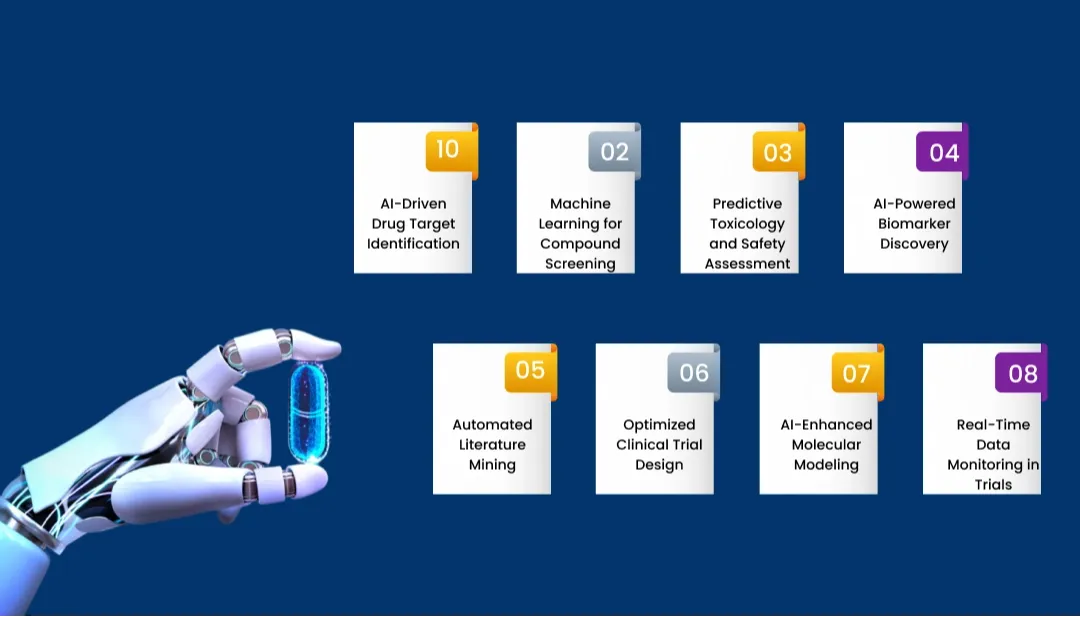
AI-Driven Drug Target Identification
The role of artificial intelligence in the pharmaceutical industry is to take advantage of large biological datasets to quickly and accurately identify new potential drug targets, creating efficiency in early-stage research processes. This saves precious time and resources for scientists as they are able to focus their attention on the most promising molecular pathways rather than using guesswork, ultimately improving the chances that their Medicine delivery app development will be a success.
Machine Learning for Compound Screening
Machine learning models allow researchers to predict how chemical compounds interact with biological targets to streamline their screening processes. Screening unwanted compounds can waste a large amount of time and effort. Artificial intelligence in pharmacy will enhance organizations' ability to accurately predict potential drug compounds. Hence, virtual screening will reduce costs and time to develop meaningful drug candidates and thus use fewer resources in the R&D phase.
Predictive Toxicology and Safety Assessment
ai in the pharmacy field can prevent drug toxicity and adverse events from patients even before clinical trials are conducted, allowing for safer drugs before the trial phase, reducing failures at later points in Pharmacy app development, and, due to cheaper alternatives, potentially avoiding costly product recalls.
AI-Powered Biomarker Discovery
AI in pharmacy finds biomarkers by unlocking new data gathered from systems biology and other complex biological data. This allows individuals to personalize treatment or develop new treatment by drug-manufacturers (developed through new biomarkers) while also helping recruiting patients for clinical trials leading to better outcomes.
Automated Literature Mining
AI-driven natural language processing tools collect and analyze scientific literature and patents to derive hidden trends/consensus in prior studies, save researchers time, and develop novel hypotheses regarding AI app development or drug repositioning.
Optimized Clinical Trial Design
AI in pharmacy also shapes the most efficient clinical trials by determining why patients make up the best cohort to study, making outcome predictions, and determining which protocol is ideal for the trial. The use of artificial intelligence in pharmacy allows clinical trials to be completed quicker, reduces the cost of trials, and increases the probability of an approved new drug product.
AI-Enhanced Molecular Modeling
AI uses advanced versions of AI algorithms to perform molecular simulations of protein folding processes as they relate to Healthcare app development with accurate simulation of structural and molecular stability. It allows for better authentic design of drug candidates for chemists while modifying them and helps develop better drug candidates with optimal binding and stability.
Real-Time Data Monitoring in Trials
AI confirming certain data previous outcomes of the clinical trial as a positive. Most ai in pharmacy platforms include elements of circumspection that are built-in to examine in real-time the data that is developed from the clinical trial. Built-in functionality may update the level of circumspection examine or dynamically modify so that if in real-time adjustments - assessing any abnormal or safety issues - can be analyzed biologically.
The Impact of AI on Drug Discovery, Testing, and Personalization
AI in pharmacy is rapidly growing in importance in the world around us. It has made a considerable impact on the discovery, testing, and personalized medicine development procedures in the pharmaceutical industry. The prototyping develops in this sphere are getting faster and the time it takes to bring them into the market is dropping along with costs. With the vast amount of data that the world contains, modern day algorithms are capable or performing predictive analysis.
Drug Discovery:
Determining new medications or discovering new targets is not an easy task. Nowadays it involves going to lengths like taking into account biological information which sometimes is not available. AI in pharmaceutical industry boost demand for scientists and other professionals. With the invention of machine learning and recent advancements in algorithms, the IT world has elivated a burden off the medical world. Machine learning enables one to draw conclusions based on data collected over time.
Drug Testing:
AI in the pharmaceutical industry in clinical trials aids in optimizing trial designs, recruitment of patients, and monitoring of data. AI predictive analytics enhances the chances of a trial's success and the cost by identifying the ideal patient cohorts. Artificial intelligence in the pharmaceutical industry enables monitoring during trials, ensuring early detection of any adverse effects or anomalies in real time and protecting the patients and the overall trial. Additionally, the role of artificial intelligence in pharmacy can predict the responses of the drugs as well as their toxicity profiles, which helps in reducing the need for animal testing.
Personalization:
AI in the pharmaceutical industry can analyze an individual's genetic data, health data, and lifestyle, enabling the creation of truly personalized treatment plans. In this approach of precision medicine, drugs are designated to specific patients through their unique profiling, which increases efficacy while reducing side effects. Further use of artificial intelligence in pharmacy biomarker discovery in stratified targeted therapies increases the success rates of clinical trials, resulting in better outcomes.
Major Challenges in Implementing AI Across the Pharmacy Sector
While artificial intelligence (AI) has enormous potential to revolutionize the pharmaceutical industry, many hurdles remain before it can be fully implemented. Successfully resolving these issues will be crucial if we want to tap into the potential of artificial intelligence in the pharmaceutical industry in pharmacy.
1. Data Quality and Availability
AI requires large quantities of high-quality, structured data. In pharmacy, this data is frequently dispersed across several systems, incomplete or in unaligned formats. Without good, clean, standardized data, not only will AI not produce accurate results, but it will also be unprocessed.
2. Regulations
Pharmaceutical companies work in a highly regulated field, and each regulation has stringent rules governing data privacy, patient safety, and drug approval and registration processes. Keeping track of the myriad regulatory stipulations and ensuring compliance will be difficult when implementing AI.
3. Expense Of Development And Implementation
Creating programs or applications for AI in the pharmaceutical industry requires a sizeable investment in systems, infrastructure, and skilled people. Many companies, especially smaller contributors, may not have the budget to complete any extensive artificial intelligence and pharmacy
4. Integration with Existing Tools
Most pharmacy organizations are using outdated IT systems to store and disseminate data and information, which will not align with or have tools to employ available AI options. Integrating readily available tools and capturing the benefits of reducing cumbersome tasks while maintaining viable workflows will be a challenge.
5. Shortage of Skills
The lack of skilled labour in Canada that combines the use of AI in the pharmaceutical industry with pharmacy practice is a significant limiting factor in the industry's ability to create, implement, and sustain targeted AI options while keeping them effective.
6. Ethical and Privacy Concerns
The fact that sensitive patient data is being collected creates privacy, security, and ethical questions related to the use of use of ai in pharmaceutical industry. We believe the use of ai in pharmaceutical industry should be done fairly, transparently and responsibly, but it is hard to say what guideline we should follow.
7. Data Bias and Model Explainability
AI models can exhibit bias from the training data and ultimately generate faulty biased decisions. In addition to this, many use of artificial intelligence in pharmaceutical industry have their function described as "black boxes" making it impossible to determine how the AI system is making its decisions, hence trust cannot be established.
8. Scalability Issues
The leap to shift the pharmacy and artificial intelligence from pilot to organization/facility-level implementation requires a lot of infrastructure development and acting and management of the change. Many employers have a hard time scaling their pilot projects into organizational change plans.
9. Staff Reluctance to Change
Many staff exhibit some reluctance to AI systems; fear of job loss, not being able to understand the AI system's operation, managing this organizational change is critical for transferring AI pilot work to an organization change implementation.
10. Ongoing Monitoring and Maintenance of the AI systems
The application of AI in the pharmaceutical industry comes with a new awareness of the need to be regularly monitored and updated, and system reliability and validity research for AI and resources may not be fairly allocated for long-term monitoring and maintenance of the system.
What the Future Holds: AI Trends Shaping the Pharmaceutical Industry
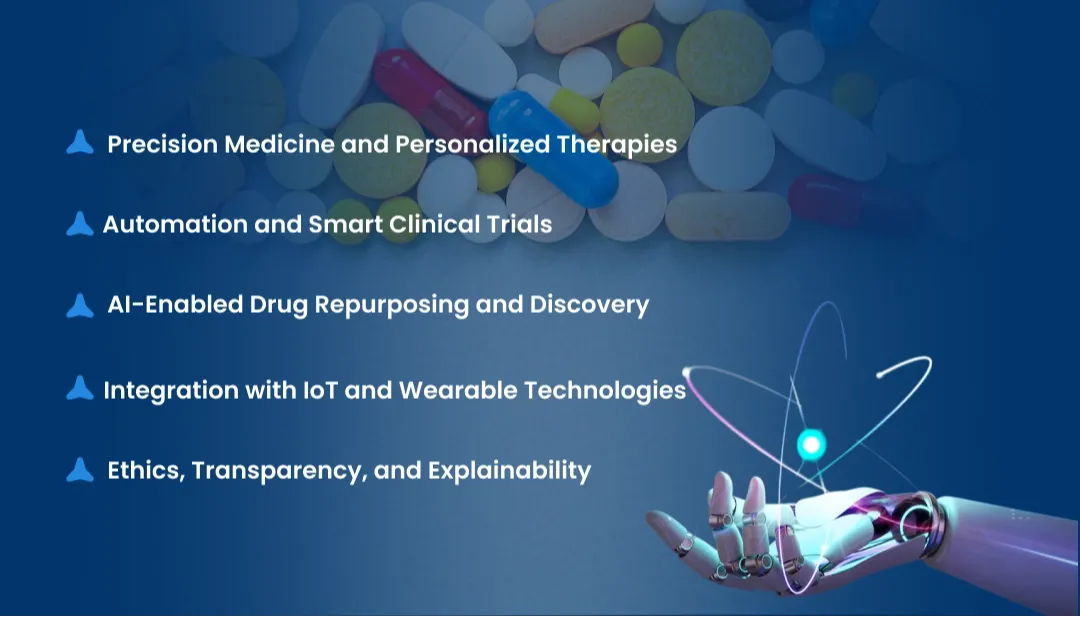
The pharmaceutical industry is on the brink of a technological disruption fueled by Artificial Intelligence (AI). AI technology is changing, which means several different trends will affect drug development, manufacturing, and care for patients now and in the future. what are they?
Precision Medicine and Personalized Therapies
AI can take complex genetic clinical data and allow a pharmaceutical company to develop individualized treatment plans for specific patients. This allows for medicines that increase therapeutic efficiency while decreasing adverse side effects effect when based on the specific individual's genetics. Considering factors like medicine delivery app development cost, AI-driven solutions can be optimized for both effectiveness and affordability. In the future, we will see more AI-driven precision medicine, and it will help both in terms of effectiveness for patients and overall health costs.
Automation and Smart Clinical Trials
AI is reinventing clinical trials by automating and accelerating the clinical trial process by recruiting patients, monitoring patients, and analyzing data. AI algorithms can quickly find wrong and right participants. They actually have the ability to tell you if a trial is going to be successful and update and modify the trial protocol if needed. All of this allows clinical trials to be shorter and less expensive while also producing better data. In the future, we should expect to have many more adaptive, real-world clinical trials and shorter paths to drug approvals.
AI-Enabled Drug Repurposing and Discovery
There will be more advances in aiding drug repurposing (i.e., using drugs developed for one issue but using them for something else) and drug discovery (i.e., finding new drug candidates)! AI will continue to mine large source data for new drug discoveries, including identifying new potential uses for off-the-shelf drugs that will get through the very slow traditional development processes faster and at a lower cost. Pharmacy AI will also be involved in discovering new drug candidates, and this role will evolve with AI's ability to automate deep learning and molecular modeling.
Integration with IoT and Wearable Technologies
With the addition of AI to the IoT device and wearable market, health monitoring can be continuous and real-time. Using these data, patients can routinely interface with their healthcare practitioners to alter the most dynamic process of treatment for any chronic conditions while simultaneously using the patient data to detect diseases in their infancy. use of artificial intelligence in pharmaceutical industry will significantly alter the efficiency of patient management, and pharmaceutical care and develop the pharmaceutical process into a continuous improvement cycle.
Ethics, Transparency, and Explainability
As AI continues to mature in both development and implementation, a surge of focus will emerge as we aim to develop Top pharmacy delivery apps that are transparent and interpretable and satisfy regulatory frameworks, professional development standards, and ethical principles. The demand for creating healthcare workforce trust must be met by organizations being perceived as responsible for the accurate and responsible delivery of safe and effective services through AI in the pharmaceutical industry.
Conclusion
Artificial intelligence and the pharmaceutical industry are safer and more efficient by speeding up drug discovery and improving clinical trials and personalized treatments. While there are future challenges associated with AI, such as the quality of data, regulatory compliance, and ethical issues. IMG Global Infotech as a AI powered medicine delivery app development company, aims to support pharmaceutical firms in addressing these challenges through machine learning in the pharmaceutical industry that is based on the unique needs of the industry. However, the overall purpose of these new innovations is to use these emergent technologies to create smarter, faster health innovations and more efficient healthcare for better patient outcomes, positively impacting the global future of pharmacy.
-
 How to Build a Jewelry E-commerce Website Like CaratLane?
How to Build a Jewelry E-commerce Website Like CaratLane?
-
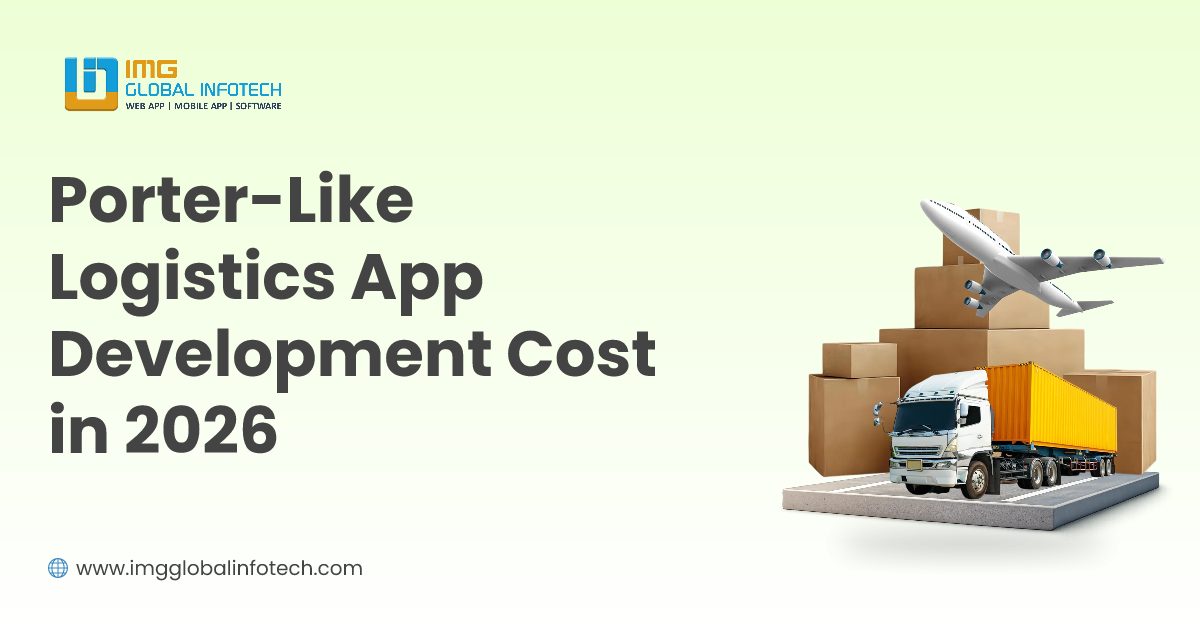 Porter-Like Logistics App Development Cost in 2026
Porter-Like Logistics App Development Cost in 2026
-
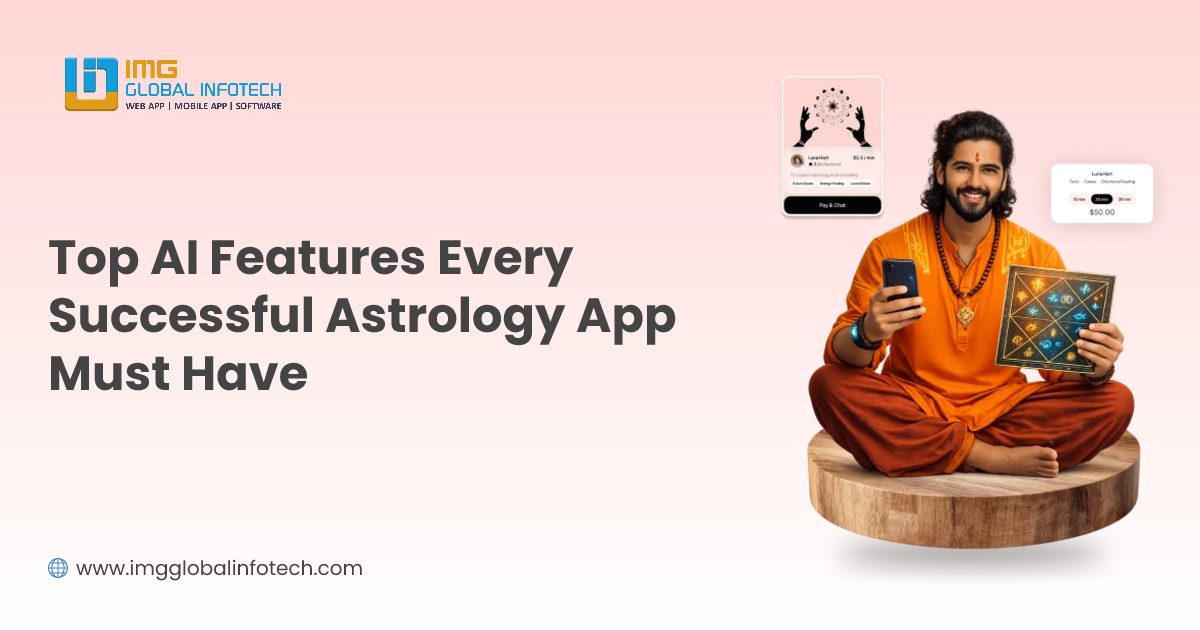 Top AI Features Every Successful Astrology App Must Have
Top AI Features Every Successful Astrology App Must Have
-
 What Are the Top Ecommerce Development Trends to Watch in 2026?
What Are the Top Ecommerce Development Trends to Watch in 2026?
-
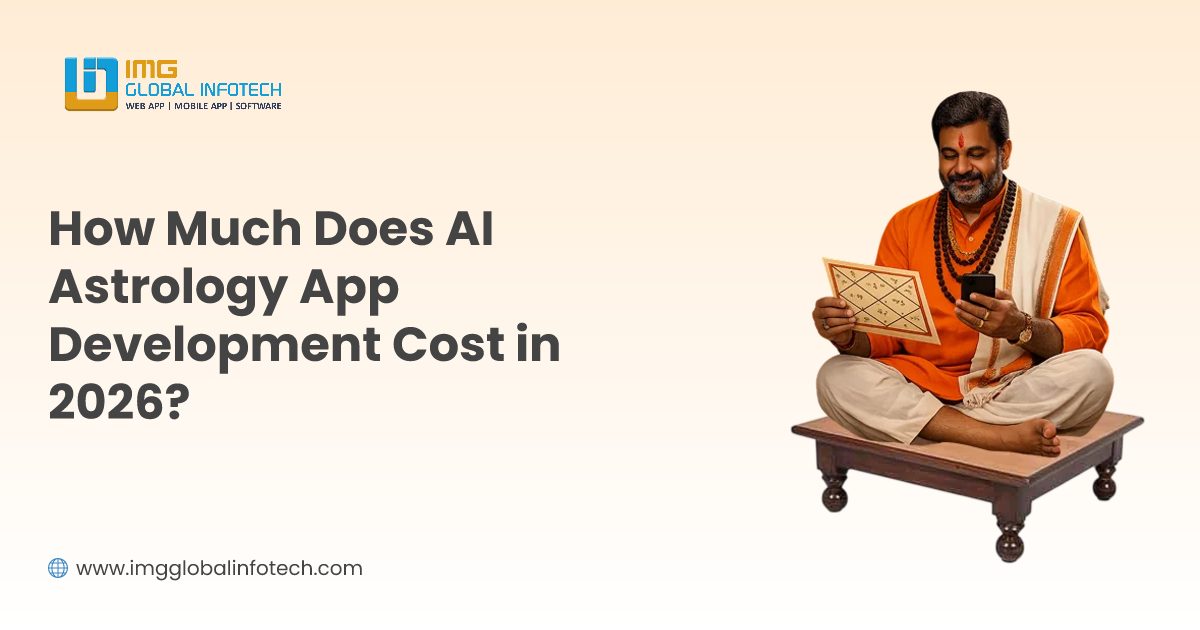 How Much Does AI Astrology App Development Cost in 2026?
How Much Does AI Astrology App Development Cost in 2026?
-
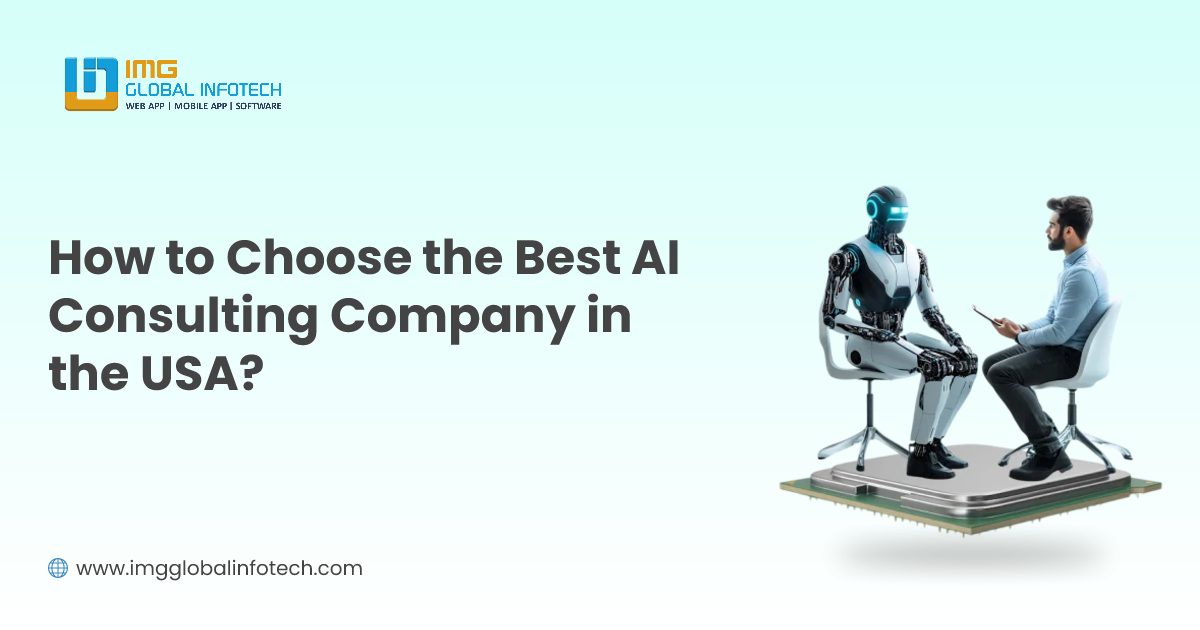 How to Choose the Right AI Consulting Company in the USA?
How to Choose the Right AI Consulting Company in the USA?
Neeraj Rajput is the co-founder of a leading IT company with over a decade of experience in technology consulting, product development, and digital transformation. With a passion for solving complex business challenges through smart tech solutions, he shares insights on innovation, leadership, and the evolving IT landscape


